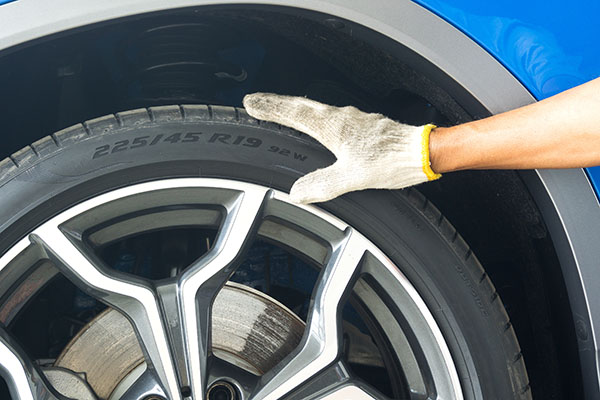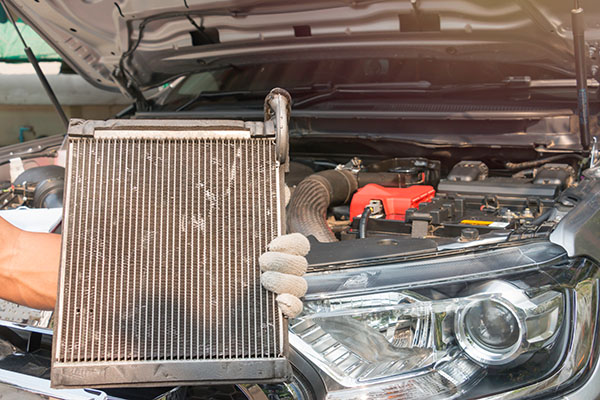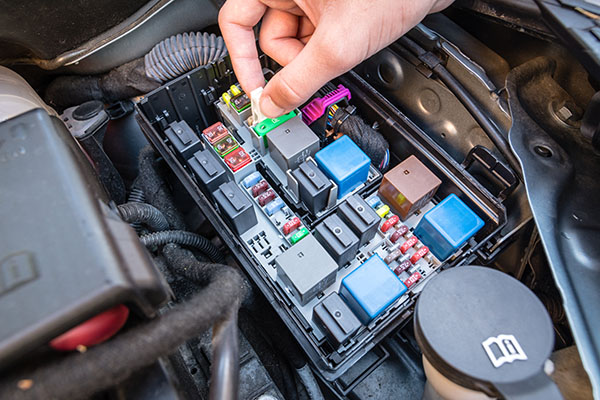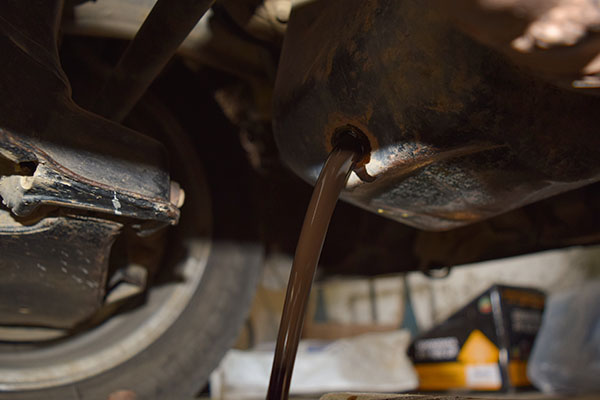Posted on 7/30/2023

When it comes to visiting a repair shop for vehicle maintenance or repairs, planning ahead and scheduling an appointment can offer significant advantages over showing up last minute. While it may be tempting to drop by spontaneously, the benefits of scheduling appointments beforehand can streamline your experience, save time, and ensure that you receive the attention your vehicle deserves. Here are a few facts that make scheduling an appointment a much better and safer approach to repair shop procedures: Remember: Booking an appointment through our website only takes two clicks! Prioritized Service By scheduling an appointment, you secure a dedicated time slot for your vehicle's service. This allows the repair shop to allocate resources, including qualified technicians, specific equipment, and necessary parts, to address your vehicle's needs promptly. Without an appointment, you may have to wait longer or risk being turned away if the ... read more
Posted on 6/29/2023

When it comes to maintaining your vehicle's performance and ensuring a smooth ride, two terms often come up: wheel alignment and wheel balancing. While these terms are related to the wheels of your vehicle, they serve distinct purposes. Let's dive in and unravel the differences between these essential wheel maintenance practices. The Difference The key difference between wheel alignment and wheel balancing lies in their objectives and procedures. While wheel alignment focuses on the angles at which the wheels make contact with the road, wheel balancing addresses the distribution of weight around the wheel and tire assembly. Wheel alignment ensures that the wheels are properly positioned for optimal performance and handling, while wheel balancing minimizes vibrations and provides a smooth ride by eliminating weight imbalances. Wheel Alignment Wheel alignment refers to the adjustment of the angles at which your vehicl ... read more
Posted on 5/31/2023

A lot of people talk about the cooling system and how it is important for your vehicle. While it is obvious that it cools something, what is that something exactly? Furthermore, what are its components and how does it work? Well, we will answer exactly this down below - three main parts are explained below: the components, what they do, and how to maintain them. The Components The cooling system consists of several key components: Radiator: It is a heat exchanger made up of small tubes and fins. Its job is to dissipate heat from the coolant fluid. Coolant: It is a mixture of water and additives that help regulate the engine temperature by flowing in a continuous loop. Water Pump: It circulates coolant through the engine and radiator. Thermostat: The thermostat acts as a valve, regulating the flow of coolant based on the engine's temperature. Hoses: These are the channels through which coolant flows between different components of the cooling system ... read more
Posted on 4/30/2023

A car's fuse box is a crucial component of its electrical system, serving as a safety mechanism to protect the vehicle's circuits from overloading and potential damage. It contains a series of fuses that are designed to break the circuit in the event of an electrical fault or excessive current flow. But how exactly does a fuse box work? Where Is The Fuse Box? The location of the fuse box may vary depending on the vehicle's make and model. In many cars, the fuse box is located under the dashboard, near the driver's side, or in the engine compartment. The vehicle's owner's manual or a fuse box diagram can help locate the specific fuse box and identify the fuses for each circuit. Main Purpose: Circuit Protection The primary purpose of a fuse box is to protect the electrical circuits in the car from damage caused by overloading or short circuits. Each electrical circuit in the vehicle is connected to a specific fuse in the fuse ... read more
Posted on 3/30/2023

Engine oil is essential for the engine's operation, helping to lubricate and cool its internal components. Over time, oil can become contaminated or it can break down, which can cause it to be harmful to your engine, instead of helping it. Old changes shouldn't be ignored, so here are five easy ways to figure out when you are due for that. 1. The Oil Looks Dirty If your engine oil is dark and dirty, when you pull out the dipstick, it's a clear indication that it needs to be changed. Over time, oil can become contaminated with debris, and other particles, which can reduce its effectiveness. And if you see metal flakes in the oil, don't drive your car any further. This is a clear sign pointing at serious problems. 2. Warning Lights Most vehicles have warning lights on the dashboard that indicate when it's time for an oil change or a pop-up message to inform the driver. This is the most obvious sign there is, so make sure you ... read more